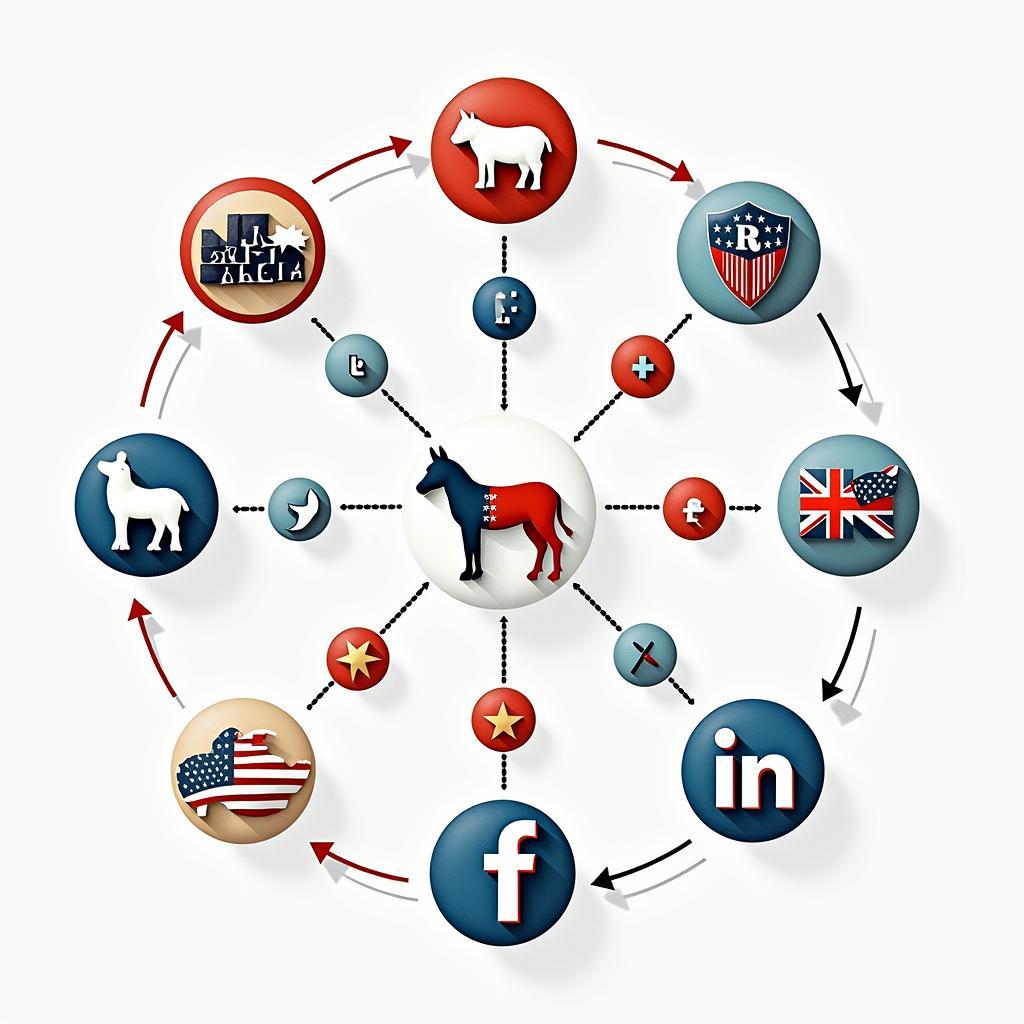The influence of social media on politics has become an increasingly common topic in IELTS Writing Task 2, appearing in various forms across recent test versions. Based on impact of social media on global politics, this theme has significant relevance in today’s interconnected world and shows high probability of appearing in future tests.

Sample Question Analysis
Some people believe that social media has had a negative impact on political discourse and democracy. Others think it has made political participation more accessible and democratic. Discuss both views and give your own opinion.
This question requires candidates to:
- Examine both positive and negative impacts
- Provide balanced analysis
- Present personal viewpoint with supporting evidence
Band 8-9 Sample Essay
The role of social media in shaping public opinion during elections has sparked considerable debate regarding its implications for democratic processes. While some argue that these platforms have degraded political discourse, others maintain that they have democratized political participation. In my view, while social media has both positive and negative effects, its overall impact on politics has been more detrimental than beneficial.
On the positive side, social media platforms have undeniably increased political accessibility and participation. Citizens can now directly engage with political representatives, share their views, and organize grassroots movements with unprecedented ease. Furthermore, marginalized voices that traditionally struggled to gain mainstream attention can now reach wider audiences, potentially influencing political agenda-setting.
However, the drawbacks of social media’s influence on politics are more concerning. The emergence of echo chambers and filter bubbles has led to increased polarization, as people tend to interact primarily with like-minded individuals and content that reinforces their existing beliefs. Moreover, the rapid spread of misinformation and fake news through these platforms has severely compromised the quality of political discourse and voters’ ability to make informed decisions.
From my perspective, while the democratizing potential of social media is noteworthy, its negative effects on political discourse outweigh the benefits. The impact of social media on political discourse has created an environment where sensationalism often trumps substantive debate, and where complex political issues are frequently oversimplified into misleading soundbites.
In conclusion, despite its potential for enhancing democratic participation, social media’s overall impact on politics has been predominantly negative, necessitating careful consideration of how these platforms can be better regulated to serve democratic interests.
Band 6-7 Sample Essay
Social media has changed the way people engage with politics in recent years. While some people think it has damaged political discussions, others believe it has made politics more democratic. I will discuss both views and share my opinion.
On one hand, social media helps more people participate in politics. People can easily share their opinions about political issues and connect with politicians directly. For example, Twitter allows citizens to follow political leaders and comment on their decisions. Also, Facebook helps people organize protests and political events more effectively than before.
However, there are some problems with social media in politics. The how social media influences political campaigns shows that false information can spread quickly on these platforms. Additionally, people often only see posts that match their existing beliefs, which can make them less open to different viewpoints.
In my opinion, social media has both good and bad effects on politics, but the negative aspects seem stronger. While it’s good that more people can participate in political discussions, the spread of fake news and increasing division between different groups is concerning.
To conclude, although social media has made politics more accessible, it has also created new problems that need to be addressed.
Key Vocabulary
- Echo chamber (n) /ˈekəʊ ˌtʃeɪmbə/ – an environment where people are exposed only to opinions that match their own
- Filter bubble (n) /ˈfɪltə ˌbʌbl/ – a state of intellectual isolation resulting from personalized searches
- Polarization (n) /ˌpəʊləraɪˈzeɪʃn/ – division into opposing groups
- Grassroots movement (n) /ˈɡrɑːsruːts ˌmuːvmənt/ – political activity driven by local communities
- Misinformation (n) /ˌmɪsɪnfəˈmeɪʃn/ – false or inaccurate information
For practice, readers are encouraged to write their own essays addressing how social media affects political engagement in their countries and share them in the comments section for feedback.